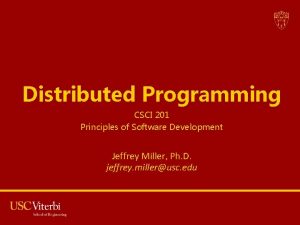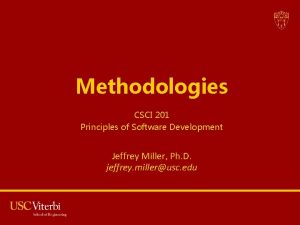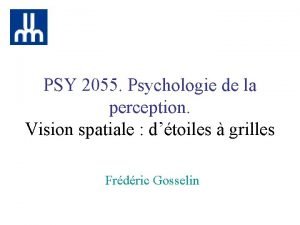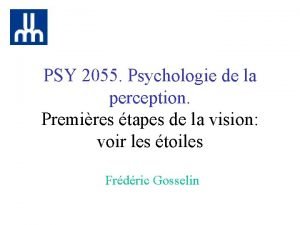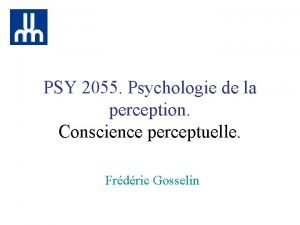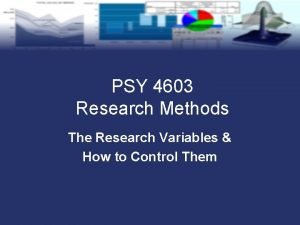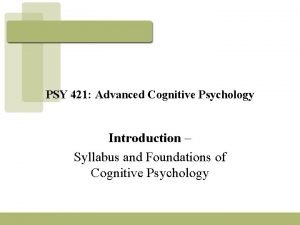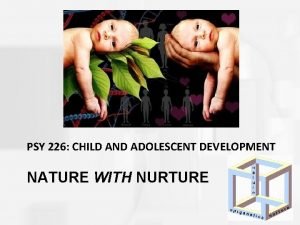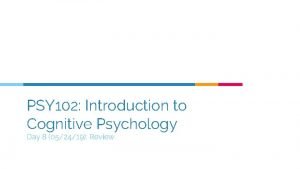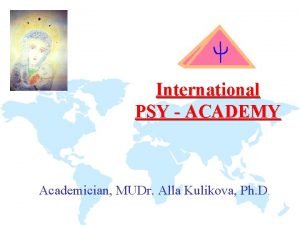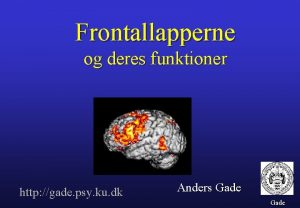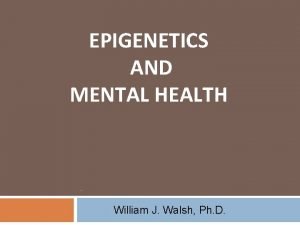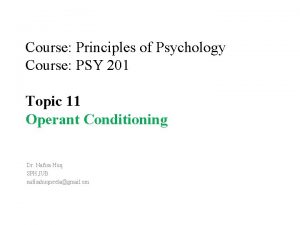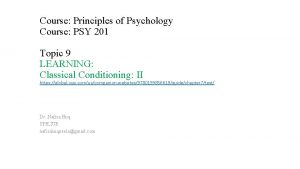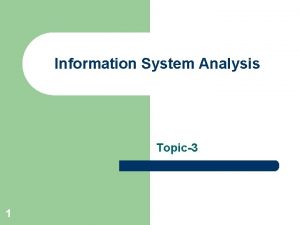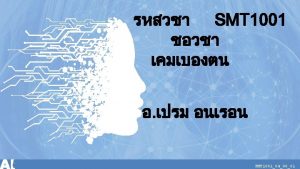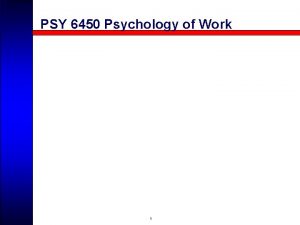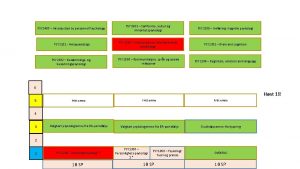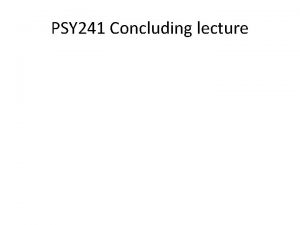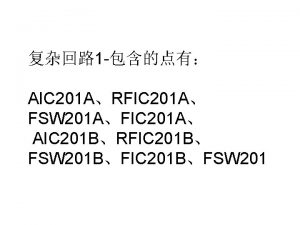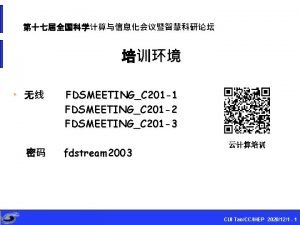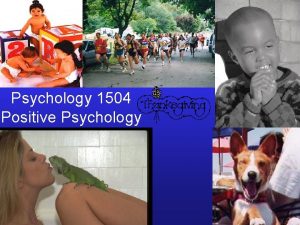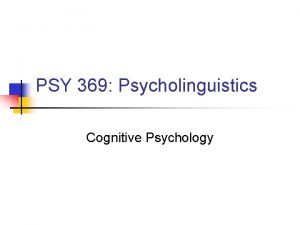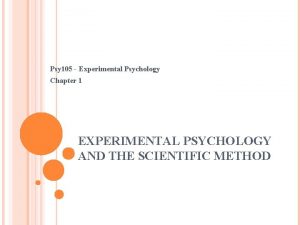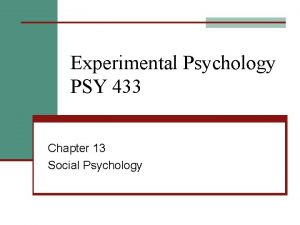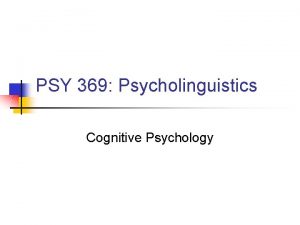Course Principles of Psychology Course PSY 201 Topic3




![Life Span Development § Genetics [nature] § Environment[nurture]: (culture, parenting, relationships, school and more) Life Span Development § Genetics [nature] § Environment[nurture]: (culture, parenting, relationships, school and more)](https://slidetodoc.com/presentation_image_h/0f1a40f81837e0ea6d58f1766947731f/image-5.jpg)

















- Slides: 22

Course: Principles of Psychology Course: PSY 201 Topic-3 Life span development-Part I Dr. Nafisa Huq SPH, IUB nafisahuqneela@gmail. om 1

2

3

Life Span Development: The sequence of age related changes that occur as a person progresses from conception to death. • Transition • Continuity 4
![Life Span Development Genetics nature Environmentnurture culture parenting relationships school and more Life Span Development § Genetics [nature] § Environment[nurture]: (culture, parenting, relationships, school and more)](https://slidetodoc.com/presentation_image_h/0f1a40f81837e0ea6d58f1766947731f/image-5.jpg)
Life Span Development § Genetics [nature] § Environment[nurture]: (culture, parenting, relationships, school and more) Broad domains of development: § Physical § Emotional and § Cognitive 5

Life Span Development • Broad periods of development: 1. Pre-natal period 2. Childhood 3. Adolescence 4. Adulthood 6

1. Pre-natal period 7

1. Pre-natal period of development a. Germinal stage b. Embryonic stage c. Fetal stage 8

1. Pre-natal period of development: Physical Development The germinal stage: (first two weeks after conception). The placenta is formed. The embryonic stage: (2 weeks -2 nd month). Vital organs and systems begin to form. Period of great vulnerability. Most miscarriages/birth defects occur during this time. The fetal stage: (2 months to birth). Continued growth, sex differentiation, physical movement, respiratory and digestive systems mature. Age of viability-22 to 26 weeks. 9

1. Pre-natal period of development: Physical Development 10

Genetic influence during • Severe genetic malformation can result in miscarriage. 11

Environmental factors and development • Link through placenta • Differing vulnerability 12

Environmental factors and development • Maternal nutrition: Birth complications; neurological deficits, apathy, irritability, reduced immune ty…. . • Maternal drug use: early death, birth defects, small head, irritability, hyperactive, retarded mental and motor activity. • Maternal illness: Low immunity. Rubella, AIDS, syphilis, cholera…(time of infection). • Maternal health care: poor in low and middle income countries. 13

2. Childhood 1. Physical Development 2. Other Developments 14

2. Childhood Oderly, predictable and gradual progression of changes. § Perceptual development § Motor development § Temperament development § Emotional development § Personality development § Cognitive development § Moral reasoning § Social development 15

Perceptual development • Development of visual acuity: 20/20 by 2 years • Development of hearing: more advanced than vision. 16

Motor Development Exposure to stimuli influences development of motor skills. Muscular coordination required for physical activity-grasping, reaching for objects, manipulating objects, sitting, crawling…. Influence of culture: Example: • The Ache society in Paraguay spend a significant amount of time foraging in forests. While foraging, Ache mothers carry their young children, rarely putting them down in order to protect them from getting hurt in the forest. Consequently, their children walk much later: They walk around 23– 25 months old, in comparison to infants in Western cultures who begin to walk around 12 months old. • However, as Ache children become older, they are allowed more freedom to move about, and by about age 9, their motor skills surpass those of U. S. children of the same age. Ache children are able to climb trees up to 25 feet tall and use machetes to chop their way through the forest (Kaplan & Dove, 1987). Developmental Norms: Average to display a behavior 17

18

Temperament Development • Temperament refers to their mood, activity level and emotional reactivity. § mood (tendency to react to the world primarily in a +ve or -ve way) § activity level (how active the child is generally) § adaptability (how easily the child adapts to transitions and changes such as switching to a new activity) v A child’s temperament at 3 is a fair predictor of temperament at 10. v Infants characterized as difficult babies needed more counseling and other help as grown ups than other children. v Heridity + Environmental influence v Study designs- 19

Emotional Development • Attachment between infants and their caregivers. • Attachment develops gradually over the first few months. • By 6 -8 months, child begins to prefer the company of primary care giver. • Separation anxiety: peaks at 14 -18 months and then declines. (Theories of attachment) 20

Cognitive Development • Development of thought process, capacity to learn, solve problems, form memory… 21

Personality Development Theories by: • Sigmund Freud (1856– 1939) PSYCHOSEXUAL THEORY OF DEVELOPMENT • Jean Piaget (1896– 1980) COGNITIVE THEORY OF DEVELOPMENT • Erikson (1902– 1994) PSYCHOSOCIAL THEORY OF DEVELOPMENT 22

